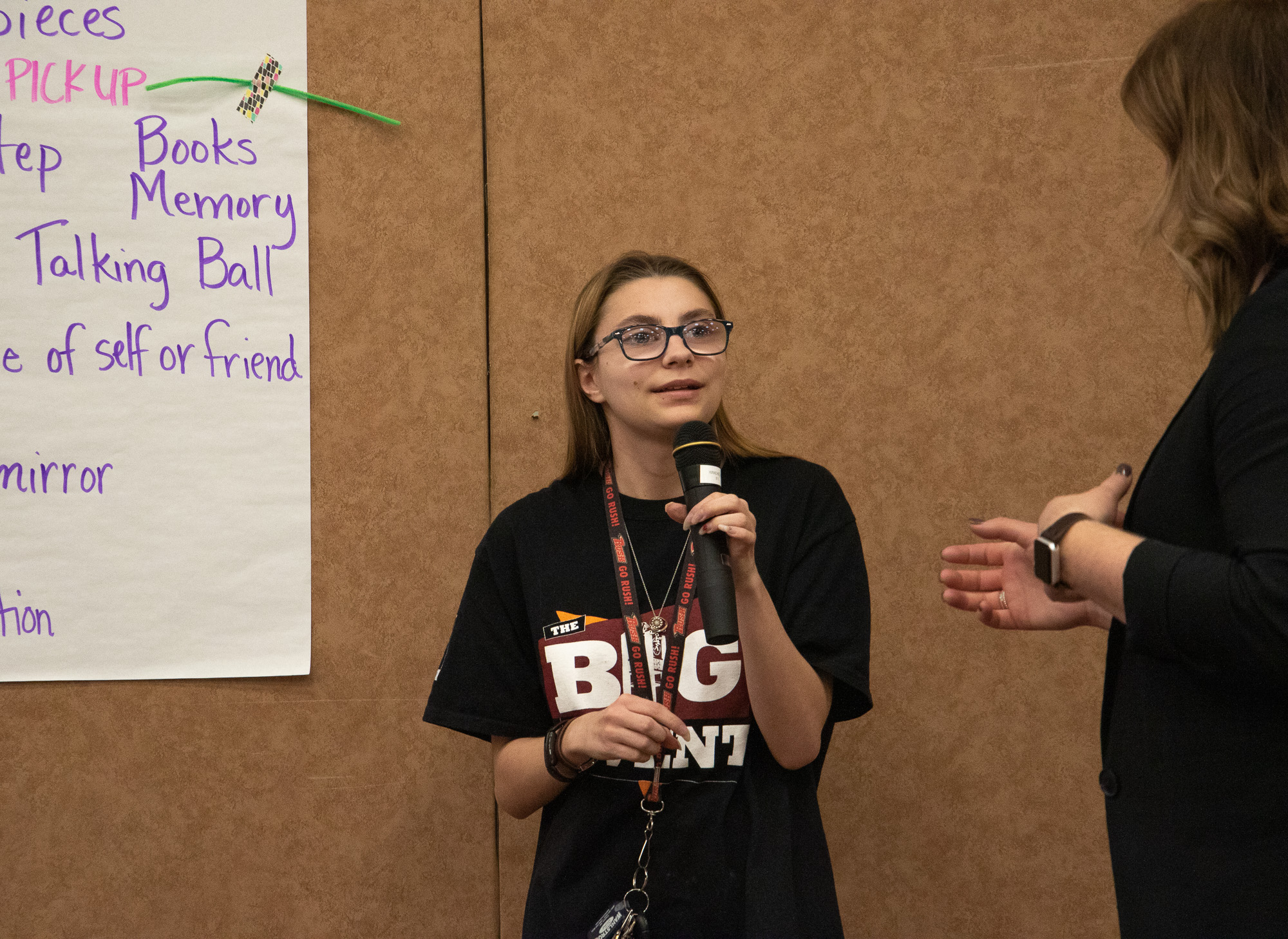Speaker: You can make a difference in children's lives

CHADRON – The emotions of children was the topic of the 33rd annual Excellence in Early Childhood Conference at Chadron State College Feb. 18. Keynote speaker Jenny Benson based her remarks on the 2015 movie Inside Out, in which the emotions of a young girl, Riley, are portrayed as a supporting cast helping her navigate life's challenges.
Benson is a Registered Circle of Security-Parenting Educator and Circle of Security-Parenting Classroom Facilitator.
Her main topics were: Responsive Relationships, Positive Experiences, and Consistent and Secure Environments.
After a brief introductory lecture about the anatomy and physiology of the brain, Benson asked attendees to create each section of the brain with a different color of molding clay. She explained that neural pathways can be like positive or negative ruts in a mud road. The more either a positive or negative experience is repeated, the more it becomes ingrained in a child’s worldview or thoughts, emotions, and reactions.
She asked participants to contrast and compare an example of a child who normally goes to the grocery store with their grandparents compared to a child who is never allowed to go outside.
“By providing activities, guest speakers, walks in nature, and a variety of books, you can make a difference. We can learn until the day we die. We can change the brain. It’s plastic. We can change it until we die,” Benson said.
Benson discussed Adverse Childhood Experiences (ACEs) and offered some techniques for reducing their negative consequences.
ACEs are common nationwide, even in Nebraska among white, middle-class households with insurance, Benson said. They can include violence, abuse or neglect, witnessing violence, losing a family member to suicide, and observing substance abuse and mental health problems.
According to Benson, ACEs result in a myriad of dangers and risks as children get older such as higher-than-usual occurrence of diseases, suicide, and others.
“The way you care for, speak to the child, and the environment you provide can all mitigate ACEs and help prevent negative outcomes,” Benson said. “Be strong, kind and committed. You matter. It’s magic. You are so important. It cannot be overstated how important you are. Be warm, caring and kind.”
She encouraged attendees to join a Circle of Security group, an organization created to benefit children through positive intentionality.
Benson said the deep desire to be loved is the loudest cry of every human.
“You have the ability, every day, to have the children feel like they matter to you. Children learn to manage emotions in relationships. Even as adults, we still need co-regulation from others. The only way a child will stay regulated is if the adults around them stay self-regulated,” she said.
Benson asked attendees about the unintended negative consequences of adults wanting children to be happy all the time. Audience members offered the following suggestions: they don’t learn coping skills, they distrust themselves, they play a role or lead a double life, feelings can build into an explosion.
Using the analogy of an iceberg, Benson asked the care providers to think of causes or influences on children’s behavior that are not always visible. Attendees offered possibilities based on their experiences, including lack of sleep, lack of food, lack of vocabulary to express their feelings, underlying or undiagnosed medical conditions, lack of adequate opportunities for movement, and lack of a routine.
Benson said helping children develop emotional literacy is important.
“When you say to the child, ‘You’re angry.’ And the child corrects you and says, ‘No, I’m frustrated,’ that’s a win because you know they have an understanding of different emotions,” Benson said.
She encouraged the audience members to create book nooks in their childcare centers with books for different ages.
“Use books during outside play, meals, snack time, large groups, and small groups,” she said. “Reading a book over and over is good for the children, even if it is boring for you. Successful social emotional learning can take place in everyday routines.”
Benson asked the audience members how they build relationships with the children in their care. They offered several suggestions: cuddling, using their names, one-on-one communication, physically being down on their level, remembering their activities and following up.
Category: Campus News, Family and Consumer Sciences
